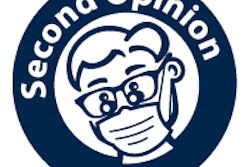The University of Pittsburgh School of Dental Medicine has been awarded a $2 million, five-year grant from the Health Resources and Services Administration (HRSA) to help improve the dental health workforce for various groups of underserved populations.
The grant will add two new tracks to the dental school's current pediatric residency program. One track focuses on providing dental care to special needs patients, and the second focuses on dental public health policy and practices for children in rural and underserved areas.
The grant will support two pediatric dental residents, who will receive a certificate in pediatric dentistry and a Master of Public Health. Pitt's dental school will collaborate with Pitt's department of family medicine, the Center for Patients with Special Needs, and other regional and national community health partners to provide dental residents family-oriented, community-based training that emphasizes cultural competency, according to the school.
"We will aim to improve the quality and quantity of available dental health workforce in rural and underserved regions of western Pennsylvania, specifically in northern Appalachia where there is a shortage of oral health professionals," stated Deborah Studen-Pavlovich, DMD, chair of pediatric dentistry and program director for the Pediatric Dentistry Residency Program, in a press release. "The Title VII funding gives the pediatric dental residency a wonderful opportunity for educating additional residents to be dually trained and providing much needed dental services to the region's most vulnerable populations."
Robert Weyant, DMD, DrPH, associate dean for dental public health and community outreach, stated, "This new program also will help our residents' transition into meaningful careers where their training can be brought to bear on reducing oral health disparities."



















